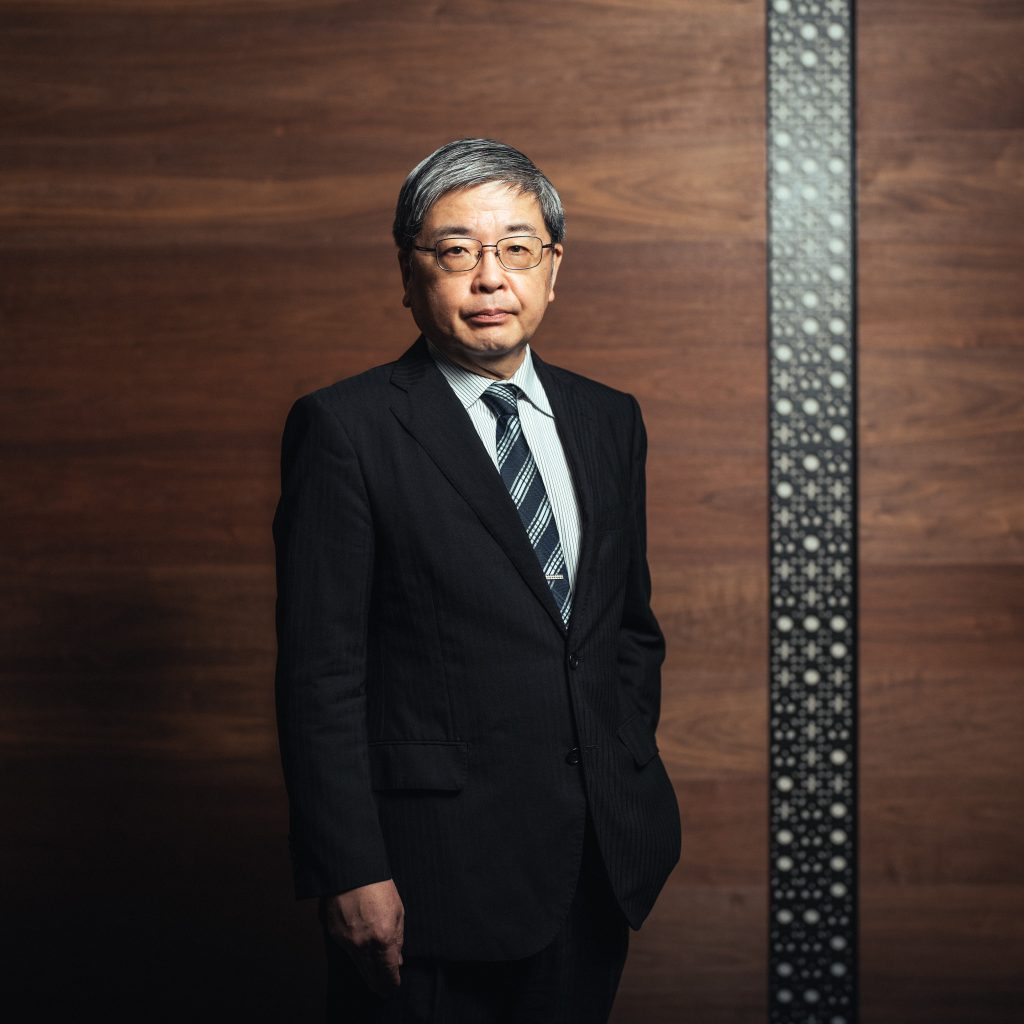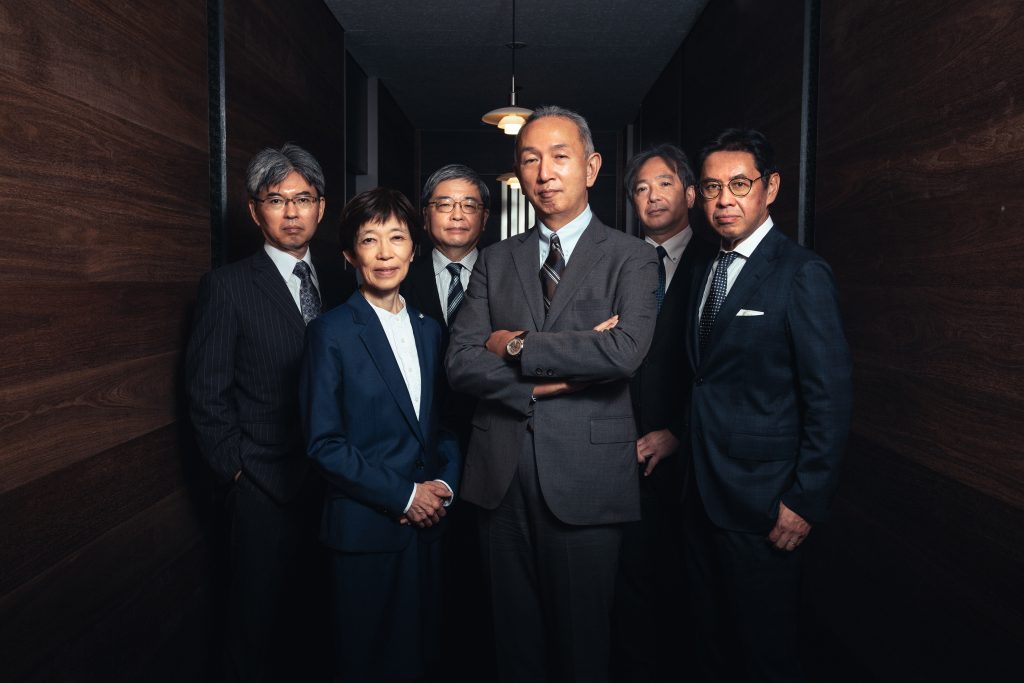Sophia University’s Research Spirit Through Three New Institutions

Sophia University has added two new University-affiliated research institutions and one new permanent research institute in FY2022. The Vice President for Academic Research Affairs will discuss the unique features of Sophia University’s research through these three institutions: the Institute for Island Sustainability, the Sophia Institute for Human Security, and the Institute of Islamic Area Studies.
Combining the Power of Various Disciplines to Solve Social Issues
Sophia University has two forms of research institutes: those that are affiliated with the Sophia Research Organization (SRO) and those that are not.
The SRO was established in 2005 to take advantage of the fact that all of Sophia’s faculties and graduate schools are located on one campus. Currently, 15 research institutes belong to the SRO, with research conducted and shared among them. Since the budget, administrative staff, research support students, etc. are managed as one organization, it is characterized by its uniquely integrated operations, such as the fusing of research by multiple institutions and coordinated research result announcements.
On the other hand, attached research institutes are directly affiliated with Sophia School Corporation or Sophia university, and are characterized by their focus on specific, university-driven research topics.
The full staff of researchers at all research institutes comes from various faculties and graduate schools resulting in cutting-edge knowledge being continually returned to our educational activities.
Three Research Institutes acting as Strong Forces in Unique Research Areas
The Institute for Island Sustainability is a university-affiliated research institute focusing on islands. Islands pack a variety of topographical elements into a small area, yet have limited means of transportation to and from surrounding countries. While these factors contribute to the richness of life and opportunities for a tourism-based economy, they also make the islands susceptible to environmental change, with challenges such as sea level rise, disasters, hunger, and population increase/decrease becoming more pronounced.
This Institute takes on these unique challenges faced by islands and synthesizes the knowledge of political science, sociology, and other social sciences, as well as geology, biology, and other natural sciences. To date, our research has covered islands like Micronesia and the Caribbean, as well as Japanese islands such as Amami Oshima and Sado Island.
Our 2021 policy proposal on the food supply system of the Republic of the Marshall Islands was very well received by the country and the United Nations, and we continue to advise on policy today. Japan itself is also an island nation and the risks associated with the topography of other islands are common throughout our country. In the future, the Institute envisions applying its research on domestic and international islands to Japan itself.
At the Sophia Institute for Human Security, also a university-affiliated research institute, social science researchers are divided into five units (Poverty / Environment / Health and Medical Care / Migration and Refugees / Peacebuilding).
For example, the poverty unit investigates poverty and rice cultivation in Bangladesh, the Philippines, and other countries. A distinctive feature of this project is combining economics and data science. By analyzing satellite images of local areas captured by satellites, the unit confirms the local agricultural and economic conditions, such as whether rice paddies are watered and which areas have light at night. By understanding how people are engaged in production activities, students can identify causes of and solutions to poverty.
The Institute also actively holds seminars for the general public. The “Human Security and Peacebuilding” seminars, held five times a year, feature leading Japanese experts and policymakers as lecturers and provide an opportunity for university students, high school students, and citizens to come together in thinking about global issues.
The Institute of Islamic Area Studies, which belongs to the research institute division of the SRO, investigates and researches religious views, gender views, food, travel, and other cultures among the peoples of the Islamic world.
It may seem strange to have an Islamic research center in a Catholic university, but Sophia University is one of the leading centers for Islamic studies in Japan. On campus, there is a “prayer room” for Muslims to pray and a cafeteria specializing in halal food to create a research and educational environment that is inclusive of different religions and cultures.
The Institute also contributes to the realization of diversity in the world through the elucidation of Islamic culture, utilizing its Catholic network to collaborate with universities and research institutions in various countries.
In the Spirit of SDGs: Research that Helps People and Society
The Island Institute for Sustainability and the Institute for Human Security Studies were the first Japanese universities to join Laudato Si’ University and the trigger for their establishment as university affiliates.
Laudato Si was published in 2015 as an encyclical, an important document that provides a guide for Catholic action. It states, among other things, the inseparability of environmental and social issues, and Laudato Si University, a global inter-university collaboration, has made it its mission to take action on this issue.
In March 2022, Sophia University joined Laudato Si’ University in response to the call of Pope Francis, and together with Catholic universities around the world, we aim to realize a sustainable society. The two institutes, which are directly related to the environment and human rights, will play a particularly important role in this collaboration.
Christian humanism, the founding principle of the University, permeates not only the two mentioned institutes but institutes under Sophia University. A common characteristic of the University’s research is that it deals with many themes aimed at “helping someone in need now,” in other words, solving social issues. For more than a century, long before the term “SDGs” was coined, the University has been committed to working towards a society in which no one is left behind, and this will remain our strongest commitment into the future.
